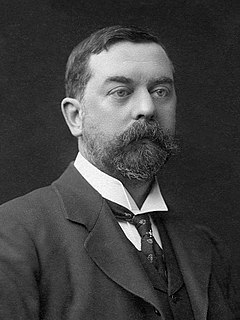A Quote by William Butler Yeats
For how can you compete Being honour bred, with one Who, were it proved he lies, Were neither shamed in his own Nor in his neighbour's eyes?
Related Quotes
Just what is the civil law? What neither influence can affect, nor power break, nor money corrupt: were it to be suppressed or even merely ignored or inadequately observed, no one would feel safe about anything, whether his own possessions, the inheritance he expects from his father, or the bequests he makes to his children.
Where no man thinks himself under any obligation to submit to another, and, instead of co-operating in one great scheme, every one hastens through by-paths to private profit, no great change can suddenly be made; nor is superior knowledge of much effect, where every man resolves to use his own eyes and his own judgment, and every one applauds his own dexterity and diligence, in proportion as he becomes rich sooner than his neighbour.
The reason why Matthew Arnold, to my feeling, fails entirely as a poet (though no doubt his ideas were good - at least, I am told they were) is that he had no sense of touch whatsoever. Nothing made any impression on his skin. He could feel neither the shape nor the texture of a poem with his hands.
His cheeks were slick with tears that spilled over his diamond eyes, a ceaseless flow he neither noticed nor appeared to care about. And she had a feeling it was going to be a while before the leaking stopped-an inner artery had been nicked and this was the blood of his heart, spilling out of him, covering him.
The wise man does nothing but what can be done openly and without falseness, nor does he do anything whereby he may involve himself in any wrong-doing, even where he may escape notice. For he is guilty in his own eyes before being so in the eyes of others; and the publicity of his crime does not bring him more shame than his own consciousness of it.
The fanatical Communist refuses to believe any unfavorable report or evidence about Russia, nor will he be disillusioned by seeing with his own eyes the cruel misery inside the Soviet promised land. It is the true believer's ability to "shut his eyes and stop his ears" to facts that do not deserve to be either seen or heard which is the source of his unequaled fortitude and constancy. He cannot be frightened by danger, nor disheartened by obstacles, nor baffled by contradictions because he denies their existence.
That’s how Ptolemy imagined the disposition of his memories, his thoughts: they were still his, still in the range of his thinking, but they were, many and most of them, locked on the other side a closed door that he’s lost the key for. So his memory became like secrets held away from his own mind. But these secrets were noisy things; they babbled and muttered behind the door, and so if he listened closely he might catch a snatch of something he once knew well.
Had I no eyes but ears, my ears would love. That inward beauty and invisible; Or were I deaf, thy outward parts would move each part in me that were but sensible: Though neither eyes nor ears, to hear nor see, yet should I be in love by touching thee. 'Say, that the sense of feeling were bereft me, and that I could not see, nor hear, nor touch, and nothing but the very smell were left me, yet would my love to thee be still as much; for from the stillitory of thy face excelling comes breath perfum'd that breedeth love by smelling.
'Impressionism' was the name given to a certain form of observation when Monet, not content with using his eyes to see what things were or what they looked like as everybody had done before him, turned his attention to noting what took place on his own retina (as an oculist would test his own vision).







































